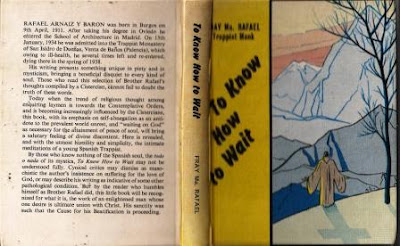I learned more about Josiah from the monastic Vigil Reading this morning. This unusual illumination on this young man in holiness, by Newman, grown against the political grain.
In passing, the reference, “He kept the narrow middle way”, makes how Newman’s words surface other ways in the two volumes of ‘The Via Media’.
| TWENTY-NINTH WEEK IN ORDINARY TIME - TUESDAY First 2 Chronicles 35:20 - 36:12 Responsory Sir 49:1.3.2 The memory of Josiah is like blended incense prepared by the perfumer's craft; it is sweet as honey to every palate and like music at a banquet.+ He set his heart upon the Lord, and in a lawless age made godliness prevail. V. He took the right course, reforming the nation, and uprooting iniquitous abominations.+ He set his heart ... Second From a sermon by John Henry Newrnan The archers shot at King Josiah; and the king said to his servants, Have me away; for I am badly wounded. His servants, therefore ... brought him to Thus the best king of
God continued his promised mercies to his people through David's line till they were too corrupt to receive them; the last king of the favored family was forcibly and prematurely cut off, in order to make way for the display of God's vengeance in the captivity of the whole nation. He was taken out of the way; they were carried off to He behaved himself uprightly in the conversion of the people, and took away the abominations of iniquity. He directed his heart unto the Lord, and in the time of the ungodly he established the worship of God. All, except David, and Hezekiah, and Josiah, were defective; for they forsook the law of the Most High; even the kings of In conclusion, my brethren, I would have you observe in what Josiah's chief excellence lay. This is the character given him when his name is first mentioned; he did ... right in the sight of the Lord, and walked in all the ways of David his father, and turned not aside to the right hand or to the left.
He kept the narrow middle way. Now what is this strict virtue called? It is called faith. It is no matter whether we call it faith or conscientiousness, they are in substance one and the same: where there is faith, there is conscientiousness - where there is conscientiousness, there is faith; they may be distinguished from each other in words, but they are not divided in fact.
They belong to one, and but one, habit of mind - dutifulness; they show themselves in obedience, in the careful, anxious observance of God's will, however we learn it. Hence it is that And this is called faith because it implies a reliance on the mere word of the unseen God overpowering the temptations of sight. Whether it be that we read and accept his word in scripture (as Christians do), or his word in our conscience, the law written on the heart (as is the case with heathens); in either case, it is by following it, in spite of the seductions of the world around us, that we please God. |




